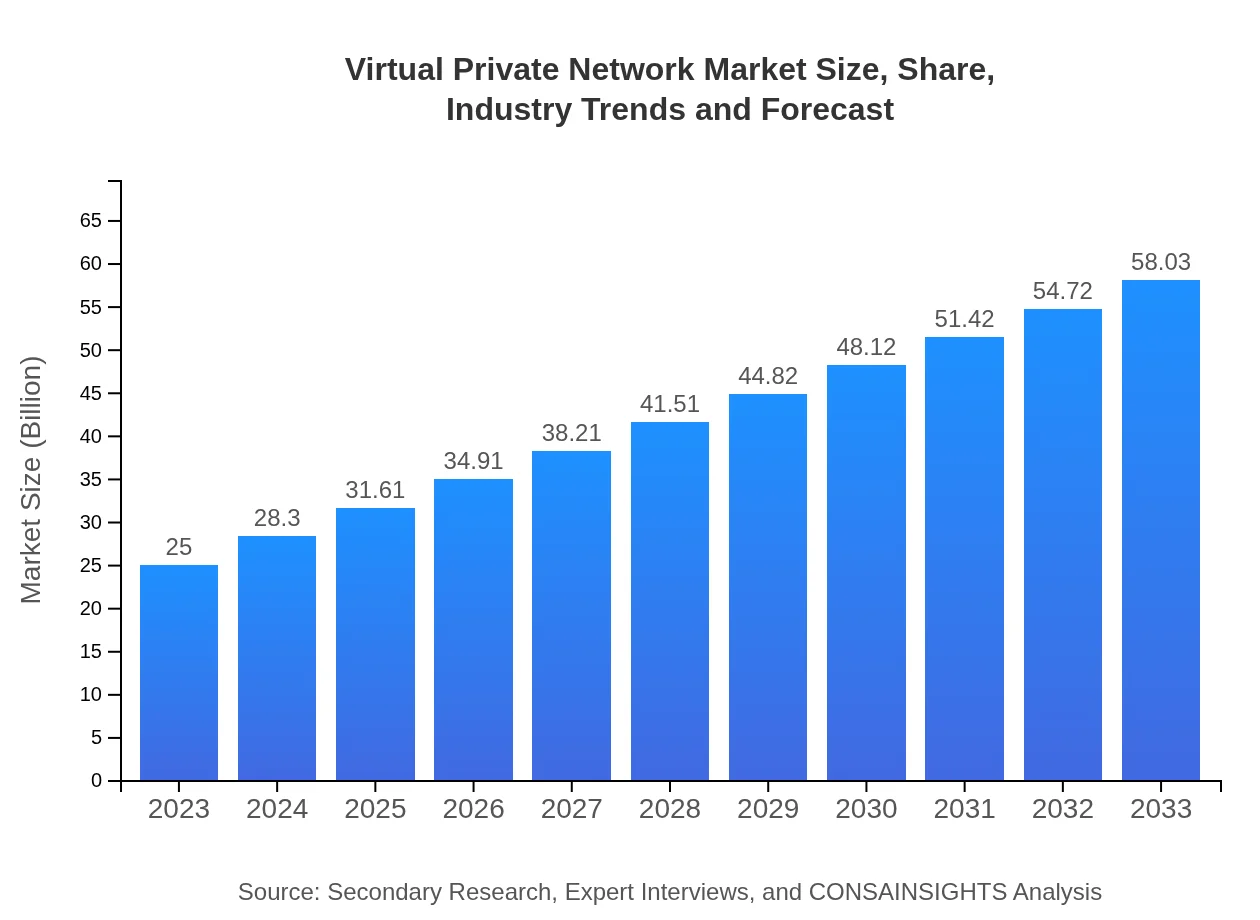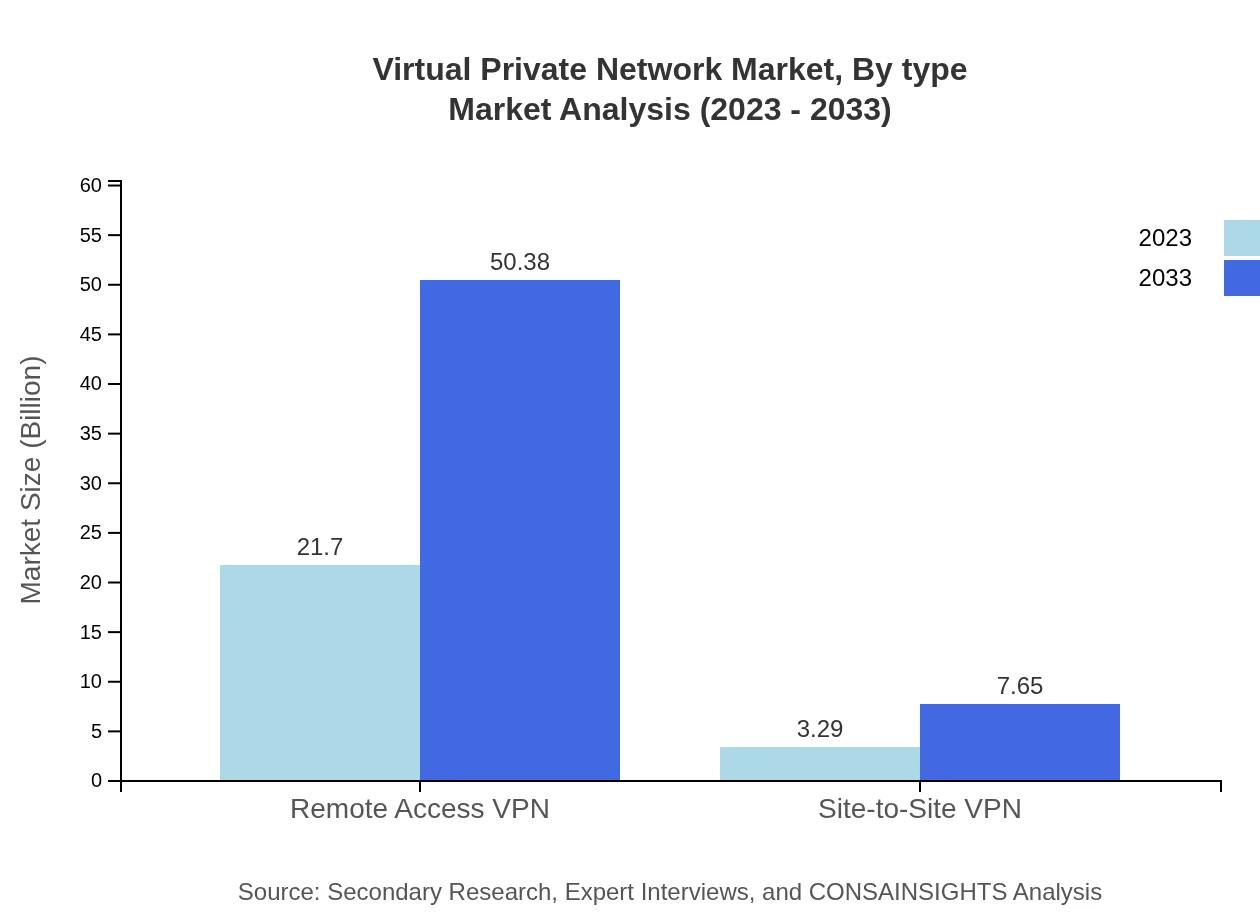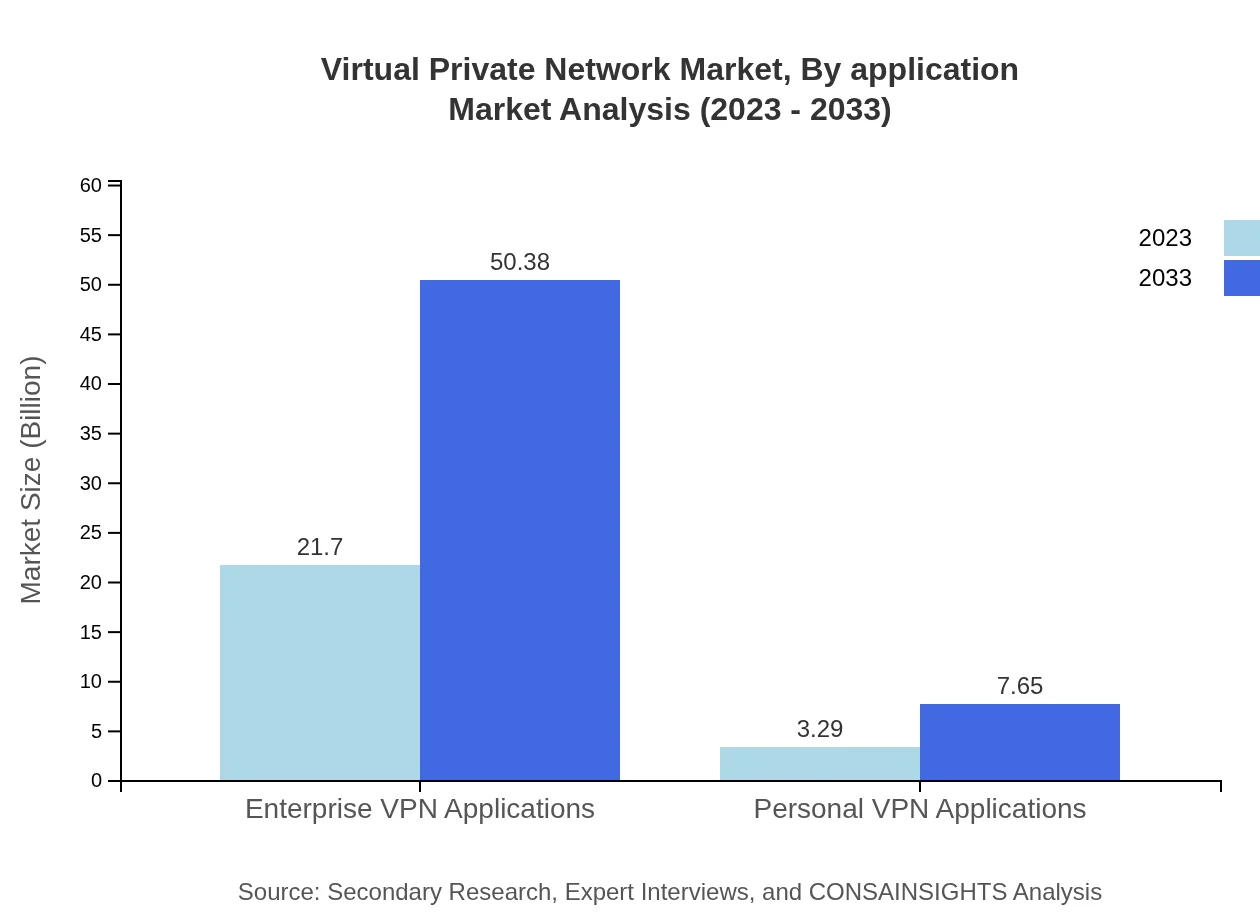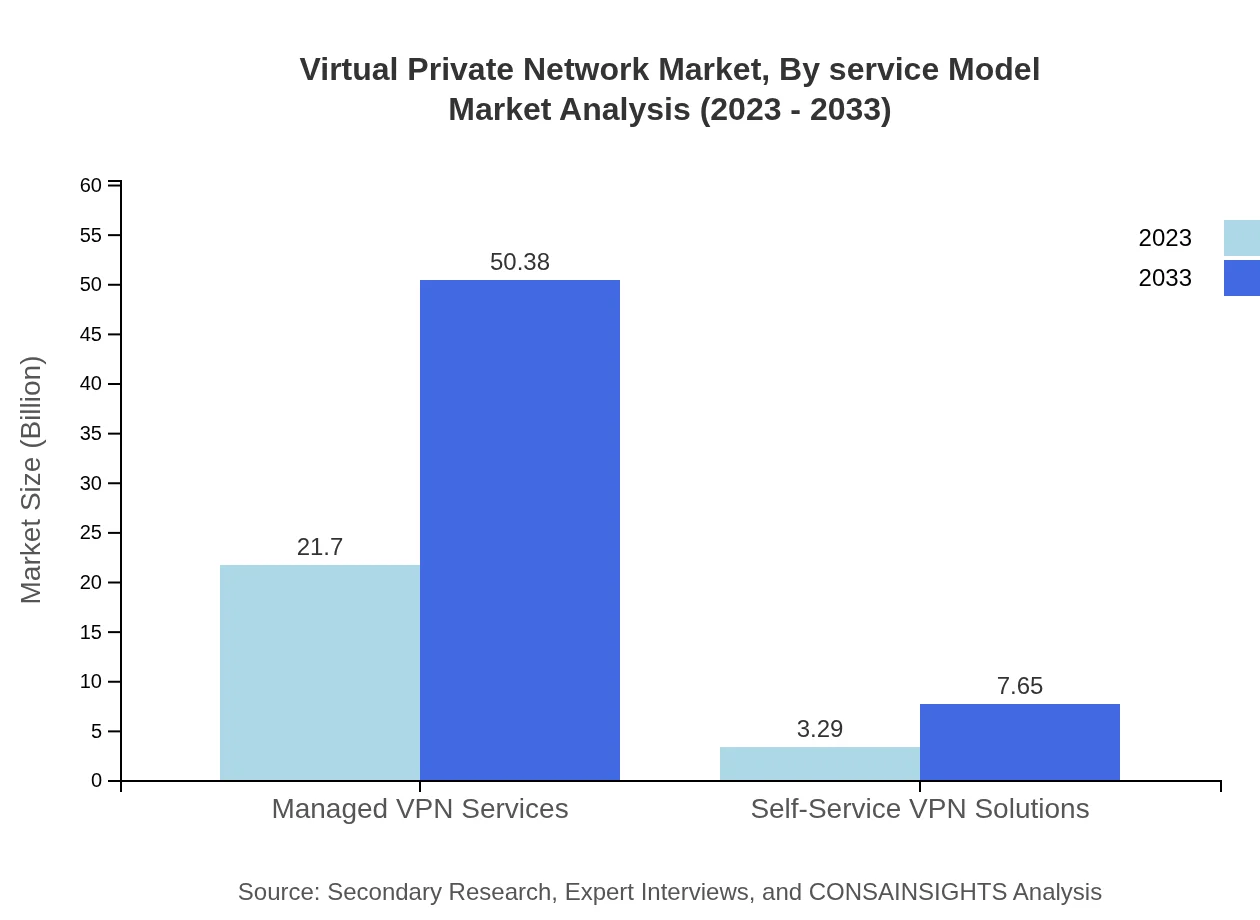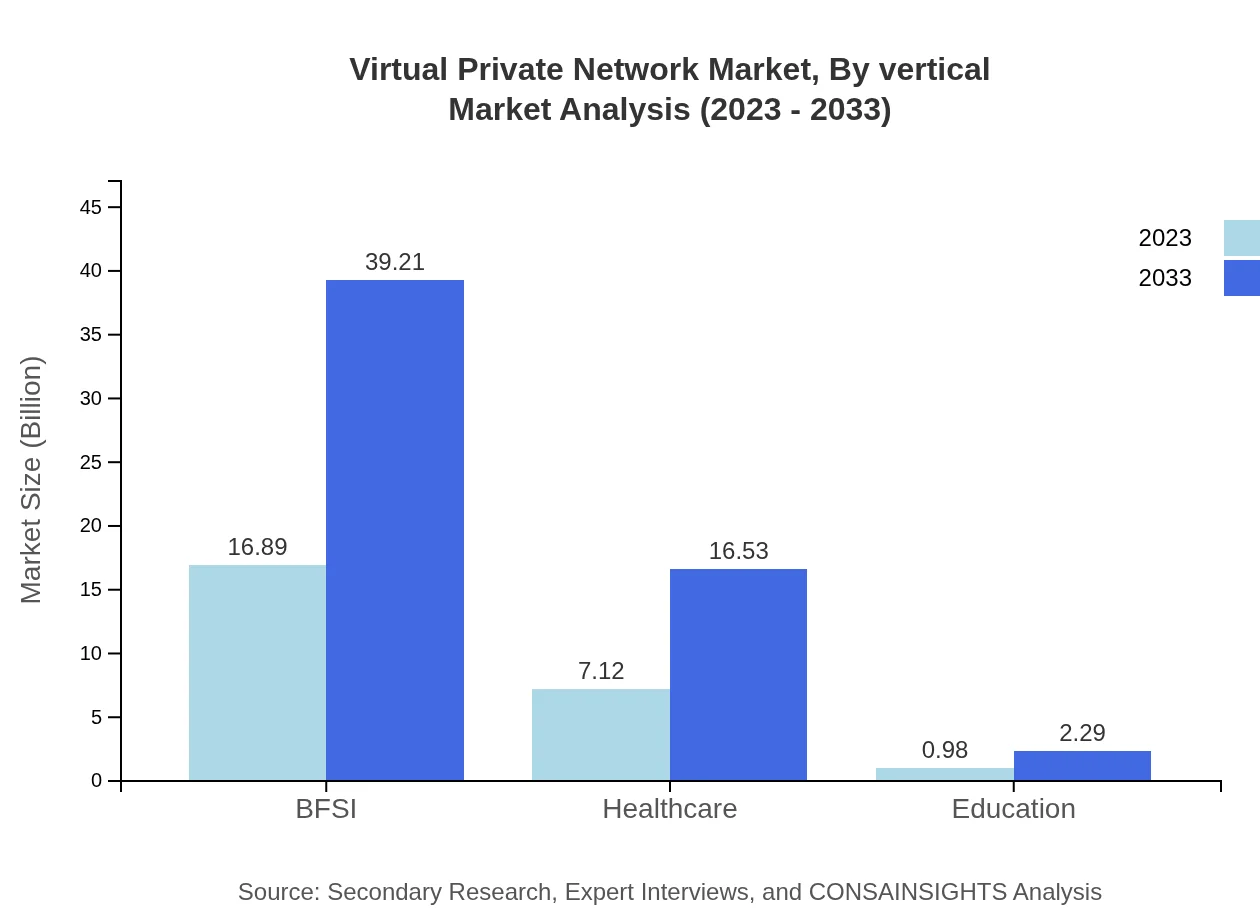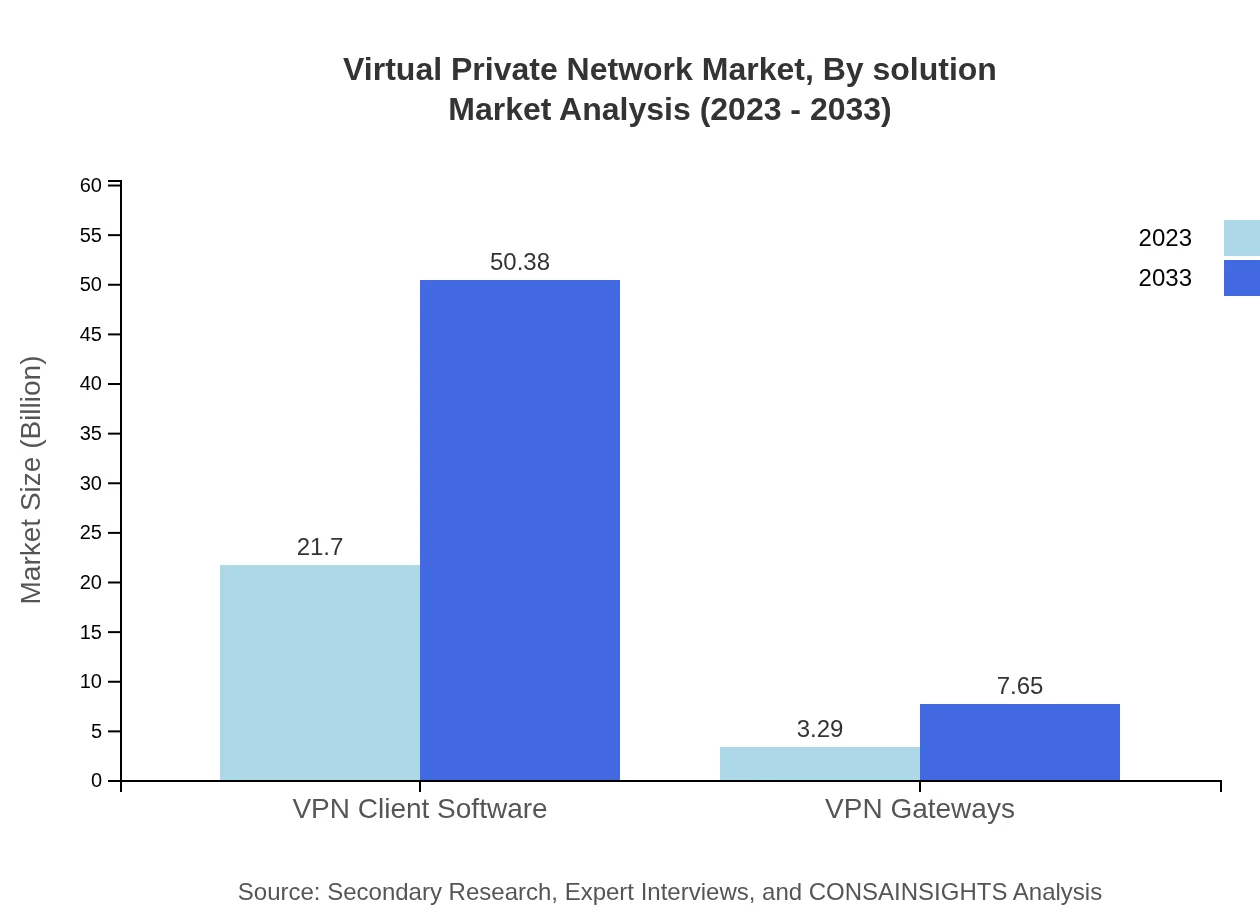Virtual Private Network Market Report
Published Date: 31 January 2026 | Report Code: virtual-private-network
Virtual Private Network Market Size, Share, Industry Trends and Forecast to 2033
This report provides a detailed analysis of the Virtual Private Network market, including current insights, regional trends, and future forecasts for the period from 2023 to 2033. It aims to inform stakeholders about growth opportunities and market dynamics.
| Metric | Value |
|---|---|
| Study Period | 2023 - 2033 |
| 2023 Market Size | $25.00 Billion |
| CAGR (2023-2033) | 8.5% |
| 2033 Market Size | $58.03 Billion |
| Top Companies | NordVPN, Cisco, ExpressVPN, OpenVPN |
| Last Modified Date | 31 January 2026 |
Virtual Private Network Market Overview
Customize Virtual Private Network Market Report market research report
- ✔ Get in-depth analysis of Virtual Private Network market size, growth, and forecasts.
- ✔ Understand Virtual Private Network's regional dynamics and industry-specific trends.
- ✔ Identify potential applications, end-user demand, and growth segments in Virtual Private Network
What is the Market Size & CAGR of Virtual Private Network market in 2023?
Virtual Private Network Industry Analysis
Virtual Private Network Market Segmentation and Scope
Tell us your focus area and get a customized research report.
Virtual Private Network Market Analysis Report by Region
Europe Virtual Private Network Market Report:
In Europe, the VPN market is expected to grow from $8.43 billion in 2023 to $19.55 billion by 2033. Stringent regulations related to data protection, such as GDPR, and increasing concerns regarding online privacy are driving organizations to invest in VPN solutions.Asia Pacific Virtual Private Network Market Report:
The Asia Pacific region is projected to grow from $3.85 billion in 2023 to approximately $8.94 billion by 2033. Rapid digitalization, increasing penetration of internet services, and a growing number of cyber threat incidents are fueling the demand for VPN solutions across countries such as India, China, and Australia.North America Virtual Private Network Market Report:
North America represents one of the largest markets for VPNs, with a value of $9.03 billion in 2023, expected to grow to $20.95 billion by 2033. The presence of major VPN service providers, a high focus on data security, and advanced technological infrastructure contribute to this growth.South America Virtual Private Network Market Report:
In South America, the VPN market size is anticipated to grow from $1.22 billion in 2023 to $2.83 billion by 2033. This growth is driven by the rising adoption of mobile devices and increasing concerns over data privacy among individuals and businesses.Middle East & Africa Virtual Private Network Market Report:
The Middle East and Africa VPN market is projected to rise from $2.48 billion in 2023 to $5.76 billion by 2033. Growing internet penetration, along with a surge in remote work, has heightened demand for secure online connections in this region.Tell us your focus area and get a customized research report.
Virtual Private Network Market Analysis By Type
The Virtual Private Network market's segmentation by type reveals significant insights. The Remote Access VPN segment is projected to grow from $21.70 billion in 2023 to $50.38 billion by 2033, accounting for an 86.82% share of the market. On the other hand, the Site-to-Site VPN is set to expand from $3.29 billion to $7.65 billion, representing a 13.18% share by 2033.
Virtual Private Network Market Analysis By Application
Applications for VPNs are categorized primarily into BFSI, Healthcare, Education, and Enterprise solutions. The BFSI segment is expected to maintain a leading size, estimated at $16.89 billion in 2023 and projected to reach $39.21 billion by 2033. Healthcare is set to rise from $7.12 billion to $16.53 billion. Educational institutions are gradually adopting VPNs, moving from $0.98 billion to $2.29 billion in the same timeframe.
Virtual Private Network Market Analysis By Service Model
The VPN market’s service model segmentation reflects distinct trends. Managed VPN Services stand out with a promising growth forecast, from $21.70 billion in 2023 to $50.38 billion in 2033. Similarly, Self-Service VPN Solutions are gaining traction, expected to grow from $3.29 billion to $7.65 billion over the decade.
Virtual Private Network Market Analysis By Vertical
Segmenting by verticals reveals that the BFSI sector continues to dominate, with a market size of $16.89 billion in 2023, estimated to increase nearly 132% to $39.21 billion by 2033. Healthcare will also see notable growth, adapting VPN technology to protect sensitive patient data, while education stands at growth from $0.98 billion to $2.29 billion.
Virtual Private Network Market Analysis By Solution
In terms of VPN solutions, the focus remains on Remote Access VPNs which are projected to grow significantly. This segment caters mainly to individual users and corporate employees working remotely, while Site-to-Site VPNs serve enterprise needs for secure connections between different office locations, with both segments showcasing promising growth rates.
Virtual Private Network Market Trends and Future Forecast
Tell us your focus area and get a customized research report.
Global Market Leaders and Top Companies in Virtual Private Network Industry
NordVPN:
NordVPN is renowned for its strong emphasis on security, offering robust encryption and a strong no-logs policy. It caters primarily to individual users and has a significant share of the personal VPN market.Cisco:
Cisco offers comprehensive enterprise-level VPN services, renowned for its Site-to-Site VPN solutions, catering to businesses looking for secure and flexible network connectivity.ExpressVPN:
ExpressVPN is a market leader in personal VPN services, recognized for its high-speed connections, broad device compatibility, and commitment to user privacy.OpenVPN:
OpenVPN provides open-source VPN technology to businesses and individuals seeking customizable security solutions, prominent for its flexibility and high security.We're grateful to work with incredible clients.









FAQs
What is the market size of virtual Private Network?
The global virtual private network market is valued at approximately $25 billion in 2023 with a robust CAGR of 8.5%, anticipating significant growth over the next decade as demand for secure internet access continues to rise.
What are the key market players or companies in this virtual Private Network industry?
Key players in the virtual private network industry include Cisco, NordVPN, ExpressVPN, and Fortinet, among others, known for their innovative solutions and expansive market presence.
What are the primary factors driving the growth in the virtual Private Network industry?
Growth in the virtual private network industry is driven by increasing cyber threats, rising demand for secure remote access, and the need for privacy and data protection in digital transactions.
Which region is the fastest Growing in the virtual Private Network?
North America is the fastest-growing region in the virtual private network market, projected to grow from $9.03 billion in 2023 to $20.95 billion by 2033, reflecting a strong demand for cybersecurity solutions.
Does ConsaInsights provide customized market report data for the virtual Private Network industry?
Yes, ConsaInsights offers customized market report data tailored to specific needs within the virtual private network industry, providing detailed insights and forecasts based on diverse criteria.
What deliverables can I expect from this virtual Private Network market research project?
You can expect comprehensive deliverables including detailed market analysis, growth trends, competitive landscape assessments, and regional insights tailored to your strategic needs.
What are the market trends of virtual Private Network?
Current market trends in the virtual private network sector include increased adoption of cloud-based solutions, growth in mobile VPN applications, and heightened focus on user privacy and data security.

